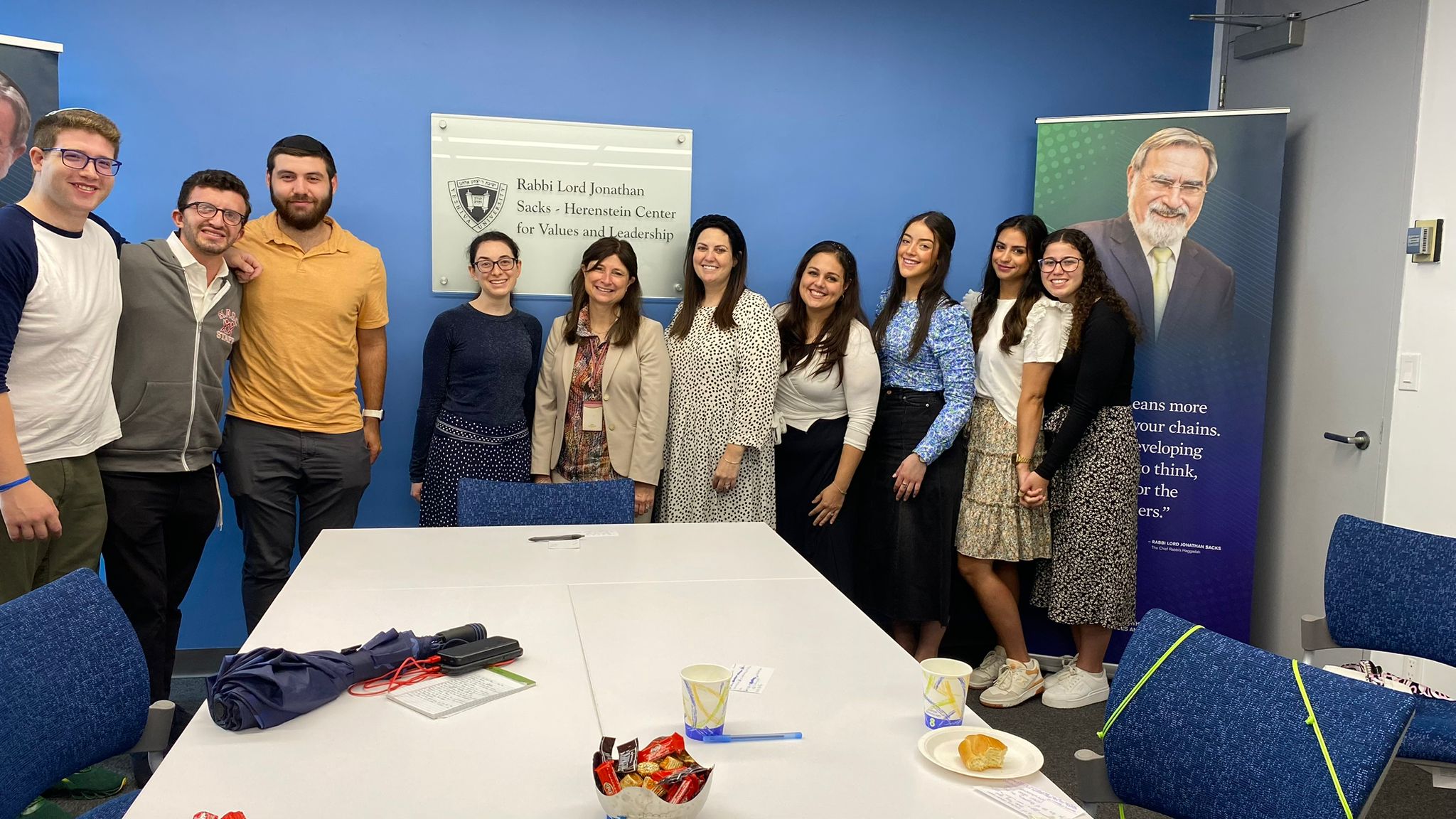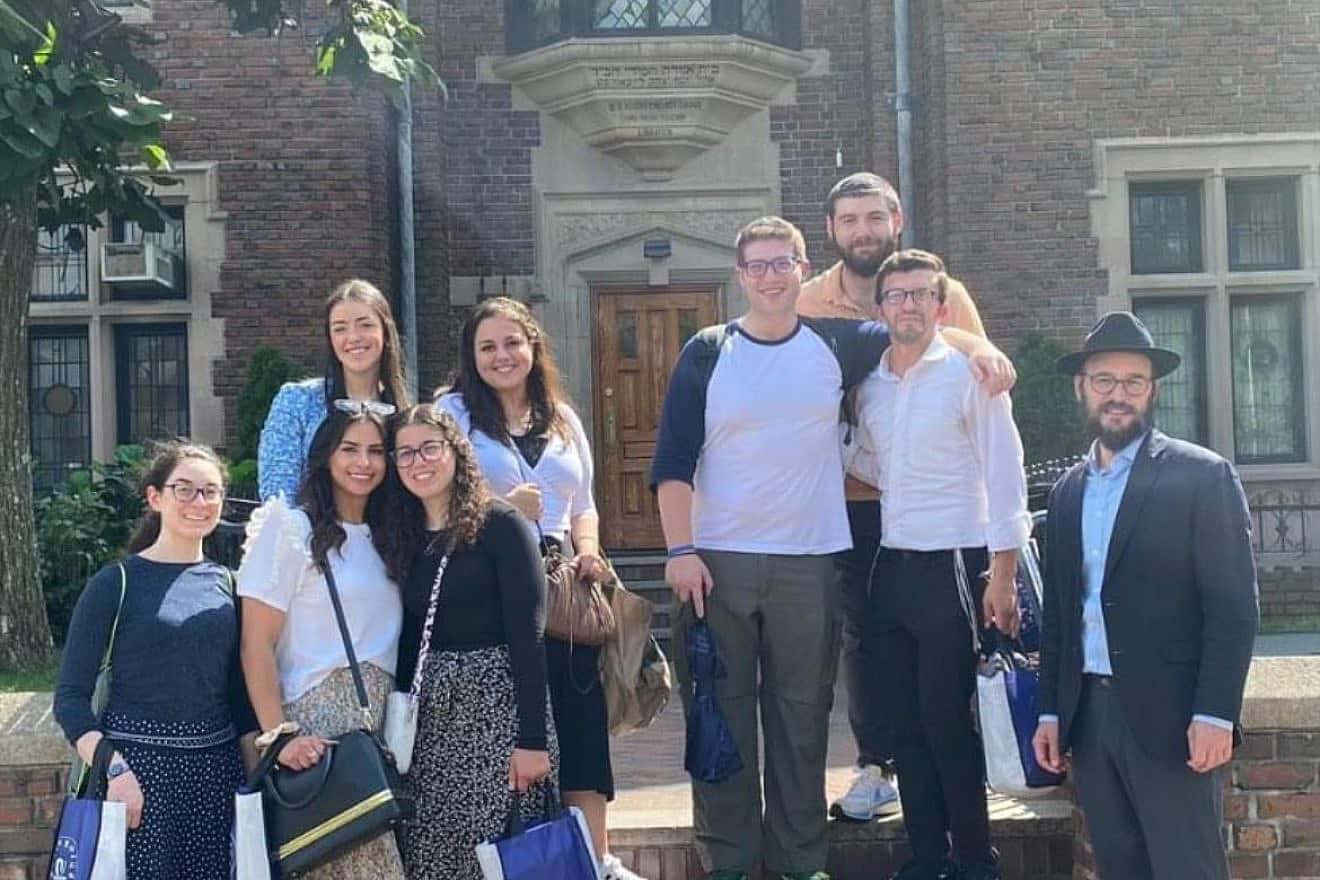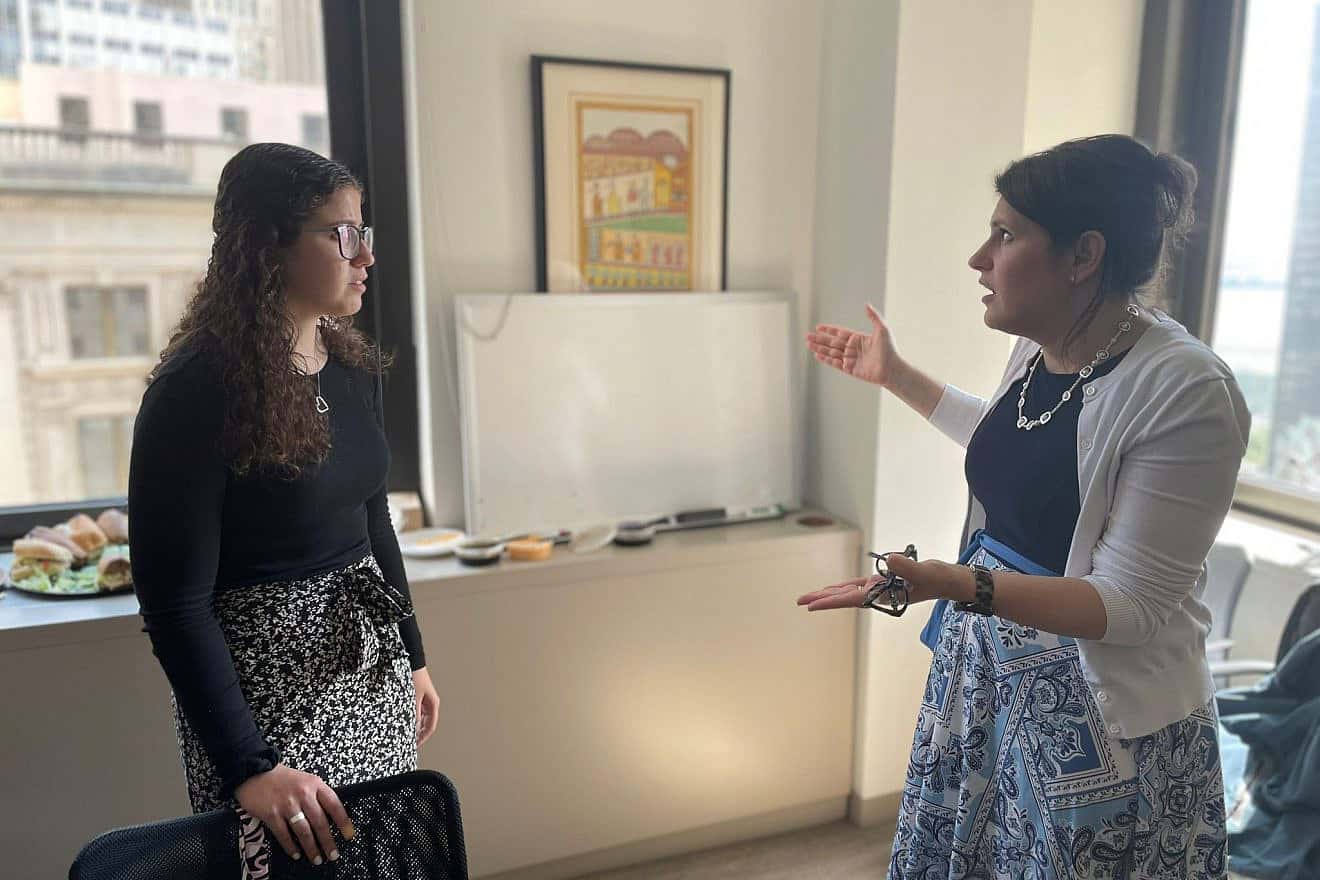In response to what it believes to be a shortage of talented professionals willing to fill Jewish communal leadership positions, the Orthodox Union launched an executive fellowship program in August to encourage those in the earlier stages of their careers to consider such roles and get a taste of the nonprofit world.
“My goal, personally, is to create a young Jewish professional who is just as capable of working at the OU as they are for a non-denominational Jewish organization such as the Jewish Federations of North America,” Ruthie Hollander, who directs the 10-month fellowship, told JNS.
She also hopes that the program plants a seed for someone who doesn’t work for Jewish nonprofits but is “on their synagogue board or involved in some other capacity with the Jewish institutions in their area.”
“There are many ways for them to be involved, but ultimately, I’m trying to invest in these young professionals’ leadership skills and ability to take initiative, passion and motivation for the Jewish community so we have a more engaged, young professional population,” Hollander added.
Knowledgeable, motivated and idealistic’
The eight fellows in the inaugural class come from a range of educational, religious and geographic backgrounds. The OU matches them based on each fellow’s skills and interests with its internal departments, including NCSY (youth), Yachad (those with disabilities), campus-based Jewish learning initiatives, human resources, information technology, marketing, synagogue initiatives, and community projects and partnerships.
As Orthodox Union employees, fellows devote 90% of their time to their jobs; senior leaders and staff members mentor them for the other 10%. The fellows also attend national conferences, trips and Shabbatons.

The fellows, all of whom have completed college, also attend seminars and workshops on topics such as email etiquette, customer service, conflict management and organizational leadership, noted Hollander.
“You never know what to expect from the inaugural cohort but these are stellar individuals,” she told JNS. “They are extremely knowledgeable, extremely passionate, motivated and idealistic. They really want to make a change, and they really want to have a positive impact on the Jewish people. They’ve all been volunteering and working within the Jewish community for most of their lives.”
‘Give back to my community’
During the program’s orientation on Aug. 28, fellows toured Yeshiva University, OU Jewish Learning Initiative on Campus sites at New York and Columbia universities, and the offices of the Jewish Federations of North America in Manhattan; and Chabad’s world headquarters and the Masbia soup kitchen in Brooklyn. They met with lay and professional leaders, learning about each organization’s mission and services.
Rena Rush, 22, originally from Cleveland who now lives in Washington Heights in Manhattan, told JNS that the program has already changed her life. She is a fellow assigned to Yachad, a group she has been involved with for many years.
“I always thought of Yachad as something I did after school or on the weekend or during summer, but this program really showed me it’s something I could make as a career,” she said, “and that I could do long term in my life and give back to my community.”
Adina Peck, 23, of Charlotte, N.C., who also lives in Washington Heights, volunteered for the OU for many years. She is now a fellow for the OU’s synagogue initiatives department.
“The office culture with the friendliness and people wanting to collaborate has been great,” she told JNS.
“People are very encouraging and trusting, and they just want to succeed,” she said. “For most of the fellows, this is our first full-time job, so it’s been a good adjustment.”
‘After the pandemic has been incredibly challenging’
Josh Joseph, the OU’s executive vice president and chief operating officer, as well as an Orthodox rabbi, is passionate about growing the pipeline of Jewish communal leaders.
The new fellowship is modeled on the now-defunct Yeshiva University presidential fellowship in university and community leadership.

The idea of the former program, which he oversaw as a senior vice president at YU, was to give recent graduates the chance to give back to the university for a year before starting the next phase of their lives.
“They wanted to spend a year learning about themselves, investing in themselves and giving back to the Jewish community,” he said.
“It was a great run. We ran the program for about 10 years over there, and then it came to an end, but we thought to restart it and do it not just with one university, but across all kinds of areas,” he told JNS.
The OU and Yeshiva University declined to comment on why the program at YU ended.
Zev Eleff, president at Gratz College in Melrose Park, Pa., praised the OU for taking a leadership position with the executive fellowship. Eleff, an Orthodox rabbi and the former chief academic officer of Hebrew Theological College in Chicago, echoed the OU’s belief that there is a shortage of talented professionals open to filling Jewish communal leadership positions.
“I think we’re seeing this in a lot of different professional spaces,” he told JNS. “There’s no question that the turnover and the departure of staff of people on all levels—whether they’re entry-level, middle management or even executive level—after the pandemic has been incredibly challenging.”
He said “we’re seeing that in Jewish day schools. We’re seeing that in Jewish camps, particularly on the executive level.”
The problem is a common one for nonprofits broadly, he added.
“We’re even seeing this at Gratz. Not in terms of our staffing, but we’re seeing it in terms of people coming to us,” he said.


























